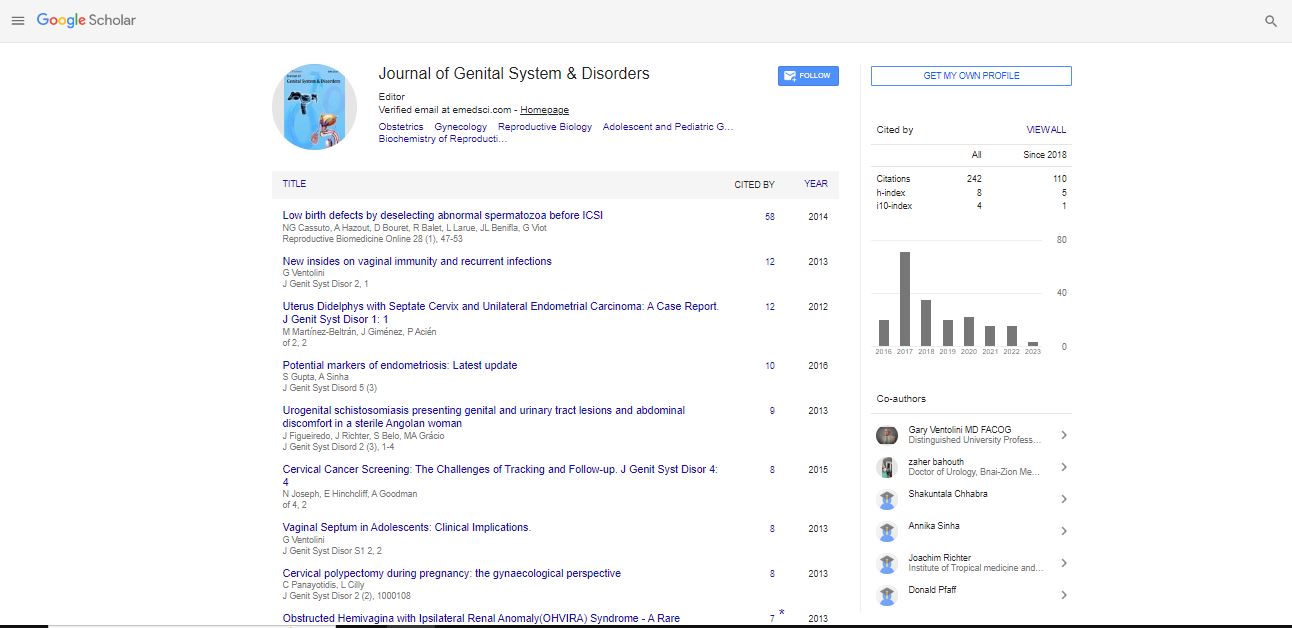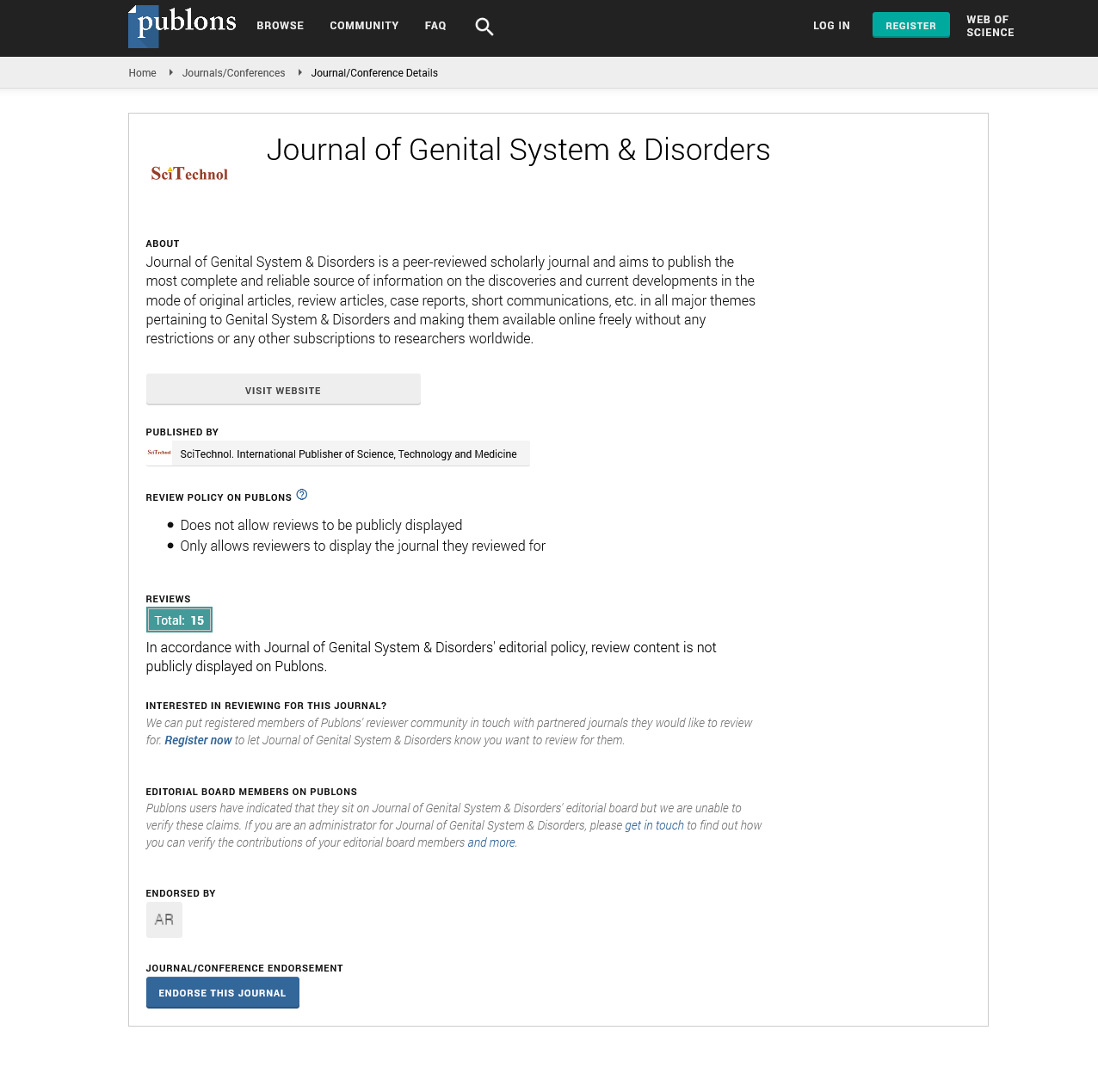Research Article, J Genit Syst Disord Vol: 6 Issue: 1
Risk Factors associated with the Presence of Anti-Treponema pallidum Antibodies in Men HIV Patients a Case Control Study
| Liña-Amador Marco1, Mata-Marín José2,4*, Alcalá-Martinez Enrique1, Ariane Estrella Weiser Smeke3, Gloria Huerta Garcia4, Manjarrez-Tellez Bulmaro2, Gaytán-Martínez Jesús2 |
| 1Epidemiology Department, Hospital De Infectología “La Raza” National Medical Center, IMSS, Mexico City, Mexico |
| 2Infectious Diseases Department, Hospital De Infectología “La Raza” National Medical Center, IMSS, Mexico City, Mexico |
| 3Medicine School, Anahuac Mexico Norte University, Distrito Federal, Mexico City, Mexico |
| 4Pediatric Infectious Diseases Department, Hospital De Pediatría UMAE National Medical Center, Siglo XXI, IMSS, Mexico City, Mexico |
| Corresponding author : José Antonio Mata Marín Seris y jacarandas s/n, colonia la raza, del Azcapotzalco, Mexico City, Mexico, PO 02990 Tel: +52 5557245900 E-mail: jamatamarin@gmail.com |
| Received: October 18, 2016 Accepted: December 28, 2016 Published: January 07, 2017 |
| Citation: Marco LA, José MM, Enrique AM, Smeke AEW, Garcia GH, et al. (2017) Risk Factors associated with the Presence of Anti-Treponema pallidum Antibodies in Men HIV Patients a Case Control Study. J Genit Syst Disord 6:1. doi: 10.41722325-9728.1000165 |
Abstract
Background: Syphilis and human immunodeficiency virus (HIV) infections are similarly transmitted and commonly coexist. HIV affects the natural history, clinical manifestations, and treatment response to syphilis. The study goal was to determine the risk factors associated with a positive anti-Treponema pallidum antibody test in HIV-infected patients.
Methods: A case-control study was conducted from August to December 2014 in an infectious diseases care hospital in Mexico City. Cases were males over 18 years, with HIV diagnosis and positive for syphilis antibodies. Controls were similar except with a negative syphilis antibodies test. All patients provided characteristics and medical records were accessed.
Results: Of 360 patients (120 cases, 240 controls), 304 were men who have sex with men. Mean ages were 34 years for cases and 36 years for controls. Risk factors associated with positive anti-Treponema pallidum antibody in multivariate analysis were hepatitis B (odds ratio [OR], 4.44 [95% confidence interval [CI], 1.48-13.31]; P=0.008) and being a drug user (OR, 2.09 [95% CI, 1.27-3.42]; P=0.003).
Conclusions: Mandatory screening for anti-Treponema pallidum antibodies among HIV-infected patients, both at diagnosis and periodically while risk factors persist or appear during disease progression may help to reduce HIV transmission.
 Spanish
Spanish  Chinese
Chinese  Russian
Russian  German
German  French
French  Japanese
Japanese  Portuguese
Portuguese  Hindi
Hindi 
